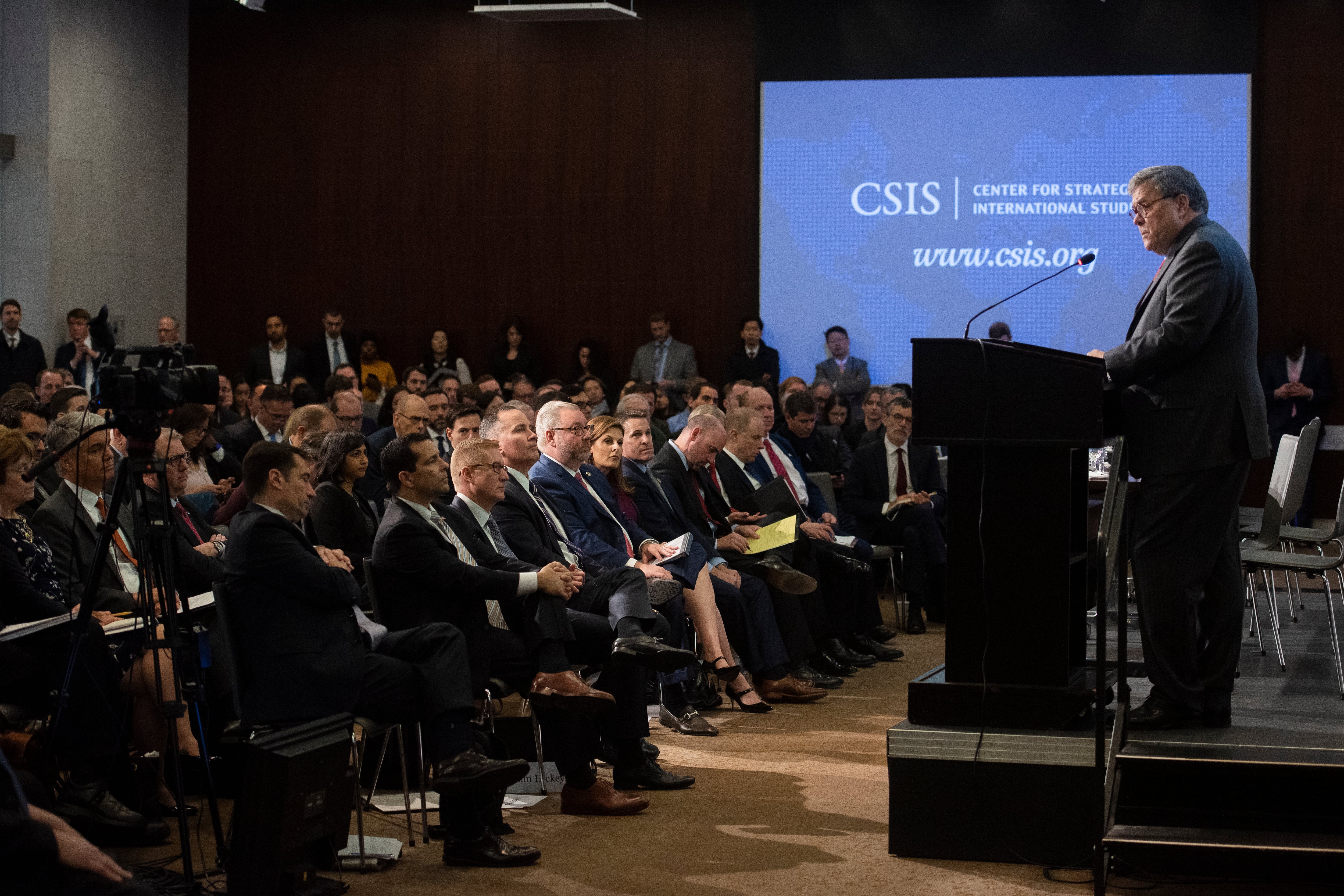WASHINGTON — Attorney General William Barr waded into ongoing diplomatic tensions between the United States and China on Thursday, decrying what he said was Beijing’s determination to establish “dominance” in the market of next-generation, high-speed wireless networks.
Barr spoke as the Trump administration has accelerated efforts to warn other countries to be wary of Chinese investment and influence. The U.S. government has been lobbying allies to ban Chinese tech giant Huawei from involvement in the network because of cybersecurity concerns.
Barr’s comments came at a conference for FBI and Justice Department officials centered on concerns about Chinese economic espionage and intellectual property theft.
The number of FBI arrests in cases related to Chinese espionage has risen sharply in the last five years, corresponding with what the U.S. government sees as an urgent threat to American economic prosperity and intellectual property, federal law enforcement officials said.
There were 24 China-related arrests in the last fiscal year, up from 15 five years earlier, and there have been 19 this year, according to Justice Department figures presented Thursday.
Officials described urgent law enforcement and intelligence efforts to counter China’s targeting of corporate trade secrets and academic research, including defense information, software for wind turbines and high-end medical technology. In recent years, U.S. officials say, China has relied not only on hacking to steal information but also on recruitment of scientists and other individuals.
“The long-term existential threat to the security of our nation is real,” said Bill Evanina, the U.S. government’s top counterintelligence official.
An email sent to the Chinese Embassy seeking comment was not immediately returned on Thursday.
The U.S. officials highlighted a series of prosecutions over the last year that they say underscore the threat, including the recent arrest of a hospital researcher in Boston accused of attempting to smuggle biological material from a laboratory to China.
Last week, the Justice Department charged the chairman of Harvard University’s chemistry department with misleading U.S. authorities about millions of dollars he had received from China and about his participation in a talent recruitment program run by the Chinese government.
That case prompted consternation on college campuses about whether it was illegal for researchers to collaborate with counterparts in other countries, said U.S. Attorney Andrew Lelling, the top federal prosecutor in Massachusetts, whose office brought the case. The answer is no, Lelling said, but it is against the law to lie to the U.S. about that collaboration.
“The upshot here is that on university campuses, what we have seen is that cases like this have generated a need for better guidelines for academia,” Lelling said.
The Justice Department in 2018 created what it calls the China Initiative to focus attention on the espionage threat, though officials stressed Thursday that the scrutiny was aimed not at individual Chinese citizens but rather at those suspected of stealing from America on Beijing’s behalf.
Not all the targets, including the arrested Harvard professor, are Chinese, either, the officials said.
“To be clear, this is not about the Chinese people as a whole, and it sure as heck isn’t about Chinese Americans as a group,” FBI Director Chris Wray said. “But it is about the Chinese government and the Chinese Communist Party.”
The Associated Press, relying on hundreds of pages of documents obtained through public records requests, reported last year that the FBI had been reaching out to colleges and universities across the country to warn them of the threat of economic espionage on their campuses.








